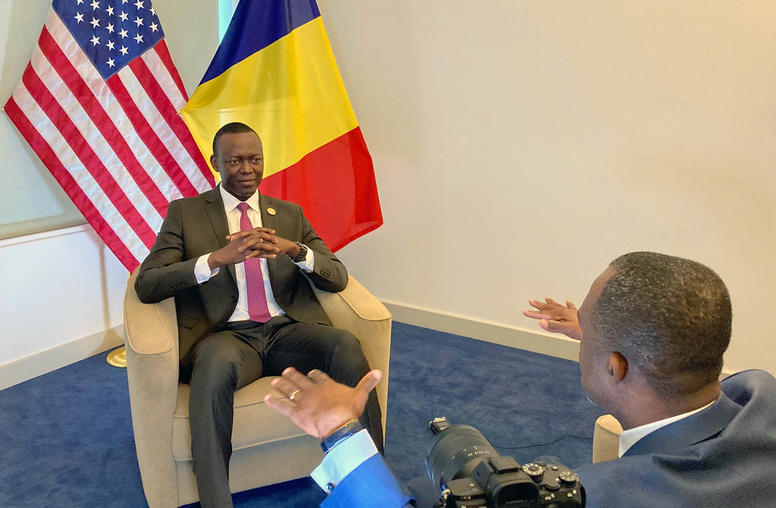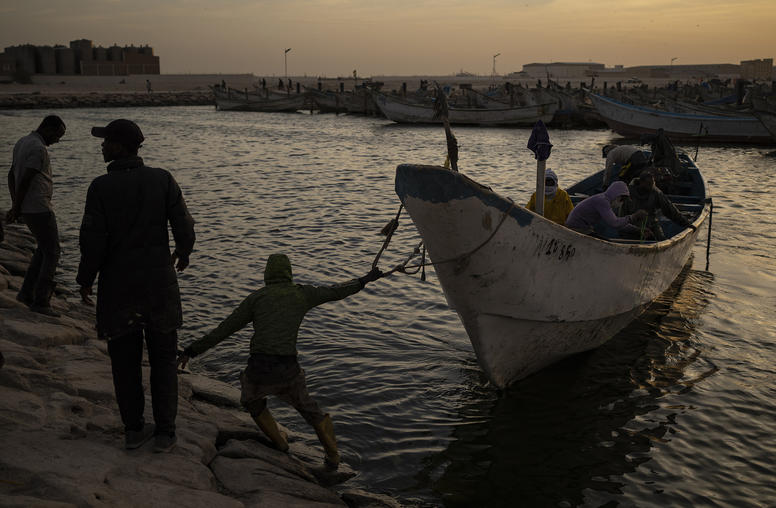Truth Commission: Chad
Truth Commission: The Commission of Inquiry into the Crimes and Misappropriations Committed by Ex-President Habré, His Accomplices and/or Accessories
Duration: 1991 - 1992
Charter: Decree No. 014 /P.CE/CJ/90
Commissioners: 12
Report: Public report
Truth Commission: The Commission of Inquiry into the Crimes and Misappropriations Committed by Ex-President Habré, His Accomplices and/or Accessories (Commission d'Enquête du Ministère Chadien de la Justice sur les Crimes du Régime de Hissène Habré)
Dates of Operation: December 29, 1990 – May 1992 (approximately 17 months)
Background: A civil war in Chad ended in August 1979 with the signing of the Lagos Accord, and a national unity government was established. In 1981, fighting broke out between President Oueddei's and Defense Minster Hissene Habré's forces. Once Habré gained control, he began a campaign of widespread repression including torture and killings. Intervention by French, Zairian (Congolese), and Libyan forces failed to oust Habré from power until Idriss Deby, on of Habré’s former generals, fled to Sudan and gained Libyan backing to launch a successful attack against Habré in December 1990. Deby became president in February 1991 and established the commission to investigate crimes committed during Habré's eight-year rule.
Charter: Decree No. 014 /P.CE/CJ/90 (PDF-54KB), December 29, 1990
Mandate: The commission’s mandate was to investigate illegal detentions, assassinations, disappearances, torture, mistreatment, other attacks on the physical and mental integrity of persons; plus all violations of human rights, illicit narcotics trafficking and embezzlement of state funds between 1982 and 1990.
Commissioners and Structure: The decree creating the commission named ten members and two secretaries as the members of the commission of inquiry; one commissioner was female. It was chaired by Chad's Chief Prosecutor Mahamat Hassan Abakar.
Report: The commission's report (PDF-1382KB) was published May 7, 1992. The report was reprinted in Transitional Justice: How Emerging Democracies Reckon with Former Regimes, Vol. 3, Laws, Rulings, and Reports, page 51-90.
Findings:
Conclusions
- Habré’s government was named responsible for an estimated 40,000 deaths.
- Among the institutions of the Habré regime, the Directorate of Documentation and Security was particularly responsible for cruelty, contempt, and terrorizing the population.
- The commission’s report described the involvement of foreign governments in funding and training the perpetrators.
Recommendations
- The commission’s principle recommendation was to accelerate the establishment of an independent judiciary and to reform the security forces.
- The commission recommended the timely creation of a National Human Rights Commission and prosecutions as well as symbolic reparations.
Subsequent Developments:
Reforms
- Currently, more than forty ex-leaders of the political police and other Habré-era regime still occupy official positions.
Prosecutions
- In 2001, a police squad, led by the former deputy director of National Security under Habré’s regime, allegedly attacked Jacqueline Moudeïna, a Chadian lawyer working for the victims. Other individuals who tried to prosecute Habré and his accomplices have received threats.
- The commission’s report took on new importance in 2000 and 2001, when human rights organizations used it to support their efforts to have Habré prosecuted for violations of international criminal law.
- In July 2006, Senegal announced that it would prosecute Habré in Senegal for his abuse of human rights during his regime. A year later, the Senegalese Justice Minister determined that Habré would be tried in a Senegalese criminal court, rather than a special tribunal. The Senegalese national assembly amended its constitution in April 2008 in order to try international crimes within Senegal.
- In August 2008, Habré was convicted in absentia of crimes against humanity and sentenced to death by a criminal court in Chad.
Special Notes: The Chadian commission of inquiry was the first commission to name those individuals it concluded were the worst human rights abusers and the only commission to publish photographs of those named. When the report was released, many of these individuals were already serving in the new government or its armed forces. While the report made a strong plea for purging all those who served under the former intelligence service, there were no purges after the reports release.
Due to its lack of resources, the commission set up its offices in the headquarters of the former secret police detention center where a majority of torture and killing took place. Many victims were deterred from giving testimony as a result.
Sources:
Center for the Study of Violence and Reconciliation. "Justice in Perspective - Truth and Justice Commission, Africa - Chad." Center for the Study of Violence and Reconciliation. Available at http://www.justiceinperspective.org.za/index.php?option=com_content&task=view&id=8&Itemid=19 (accessed June 25, 2008).
"Exiled Former President Gets Death Sentence in Chad." Agence France Presse, August 16, 2008. (accessed August 18, 2008).
Hayner, Priscilla B. Unspeakable Truths: Facing the Challenge of Truth Commissions. New York: Routledge, 2002.
Human Rights Watch. Chad: The Victims of Hissène Habré Still Awaiting Justice [Tchad: Les victimes de Hissène Habré toujours en attente de justice]. New York: Human Rights Watch, 2005. Available at http://www.hrw.org/reports/2005/chad0705/chad0705.pdf (accessed August 7, 2008).
Kritz, Neil J. and Nelson Mandela. Transitional Justice: How Emerging Democracies Reckon with Former Regimes. Vol. 3, Laws, Rulings, and Reports. Washington, DC: United States Institute of Peace Press, 1995, 48-50.
Peterson, Trudy Huskamp. Final Acts: A Guide to Preserving the Records of Truth Commissions. Washington, D.C.; Baltimore: Woodrow Wilson Center Press; Johns Hopkins University Press, 2005. Available at http://www.wilsoncenter.org/book/final-acts-guide-to-preserving-the-records-truth-commissions (accessed October 26, 2011).
Trial Watch. "Hissène Habré." Track Impunity Always (TRIAL). (accessed February 9, 2011).



